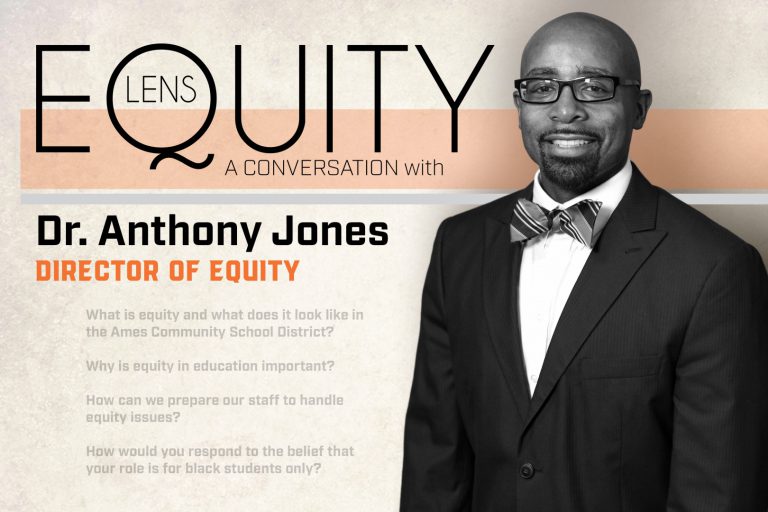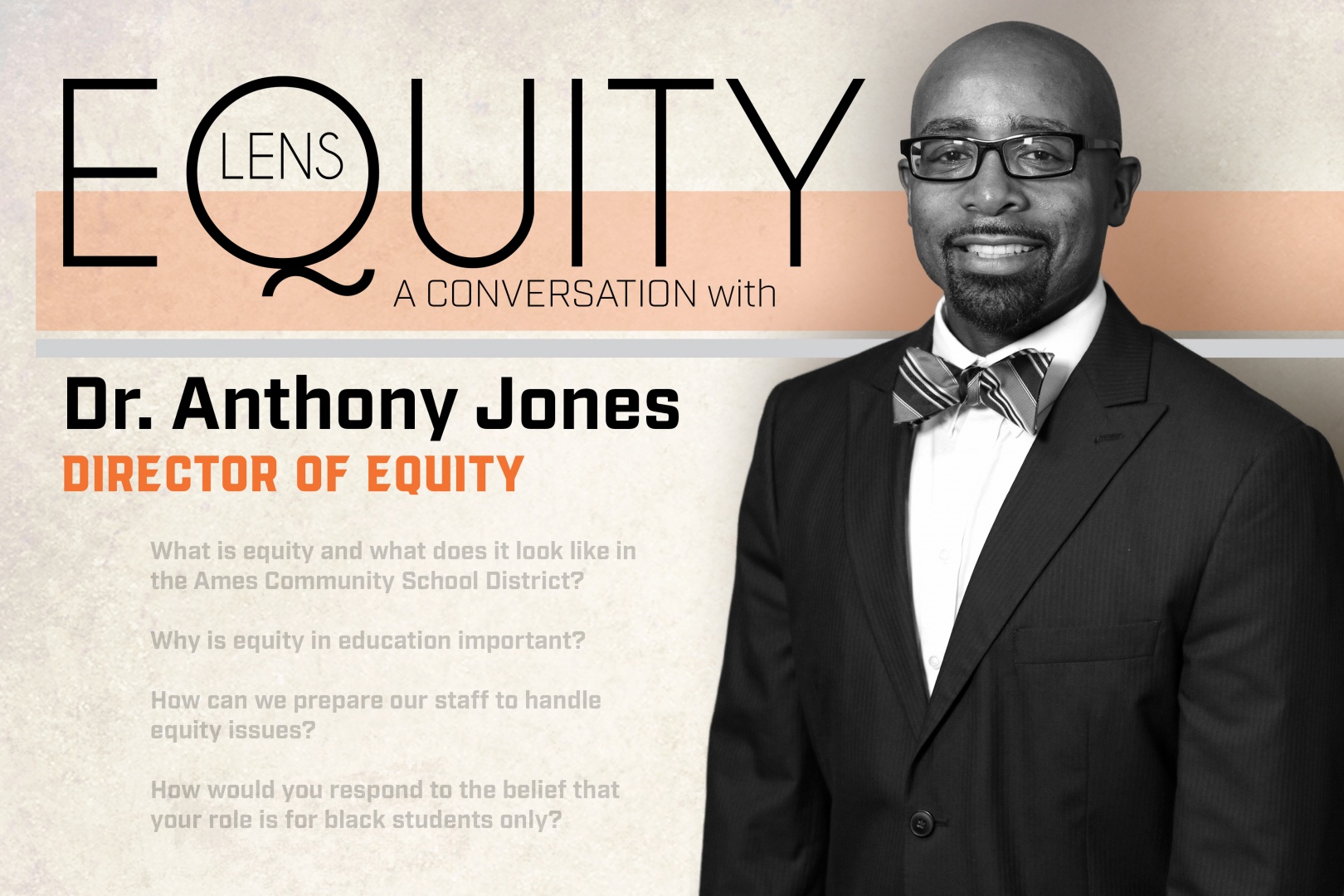

Equity Lens: a Conversation with Dr. Anthony Jones

What is equity and what does it look like in the Ames Community School District?
Equity in its simplest definition is making sure that every student has what they need when they need it. You know that equity has happened when every student is successful in our school system regardless of their race, ethnicity, gender, identity, ability, socioeconomic, language, or place of origin. Equity is about justice and fairness.
What does equity look like in Ames school district right now? Well, we’re not there yet. I describe equity in Ames schools like our new high school. We’ve all agreed that we need it and we are building it. There’s a huge hole at the location where the new high school will be soon and the foundation is being built first. That is what is happening with equity. Yes, there is a hole there but we are building the foundation for equity in Ames. It’s not going to happen overnight but it is coming!
Why is equity in education important?
Equity in education is about identifying, addressing, and eliminating the barriers that perpetuate inequities in learning for all students. We have adopted this phrase in our belief that “equity has to be the plate we eat from.” Equity in education is about embedding or centering equity in policies, practices, and procedures. It’s also about reallocating funds to the areas that support our marginalized students. Equity is important in education because our purpose as educators is to prepare and inspire our students to go out into the world to be justice-oriented community members.
How can we prepare our staff to handle equity issues?
We have to prepare our staff through learning. Our professional learning has to be intentionally focused on equity. This learning can not be about how can we fix these students. It has to be about us critically examining ourselves, practices, and the school system’s structures. We have to prepare our staff by increasing their equity lens and that comes by helping them become aware and recognize inequities in our systems, reflect on their own complicities, and go into action to change whatever inequities they recognize. We also have to be transparent with our data and break that data down by demographics (race, socioeconomic status, IEPs, English Language Learners, gender, and identity).
How would you respond to the belief that your role is for black students only?
I have to be honest with you that I am a black male and I do see color. I am not color-blind. I can’t help but recognize that our students of color struggle in our school system, especially our black students. However, my role as the Director of Equity in our district is for all students. My role is about identifying and removing barriers for all students. My role is about cultivating a school district where our white students graduate and they are not afraid to talk about race. My role is about preparing white students to be advocates for justice in whatever career they choose so we don’t continue to create these inequities in our systems.
I want to cultivate a school culture where our LGBTIA+ students feel safe in our classrooms and hallways. My role is about encouraging our English Language Learners that being multilingual is an asset in our country and not a deficit. My role is about removing barriers for our students in special education where their identified disability is not treated as an inability. And still, my role is about being unashamed about advocating and removing barriers for black and brown students to have access to every opportunity given to every student in our district.